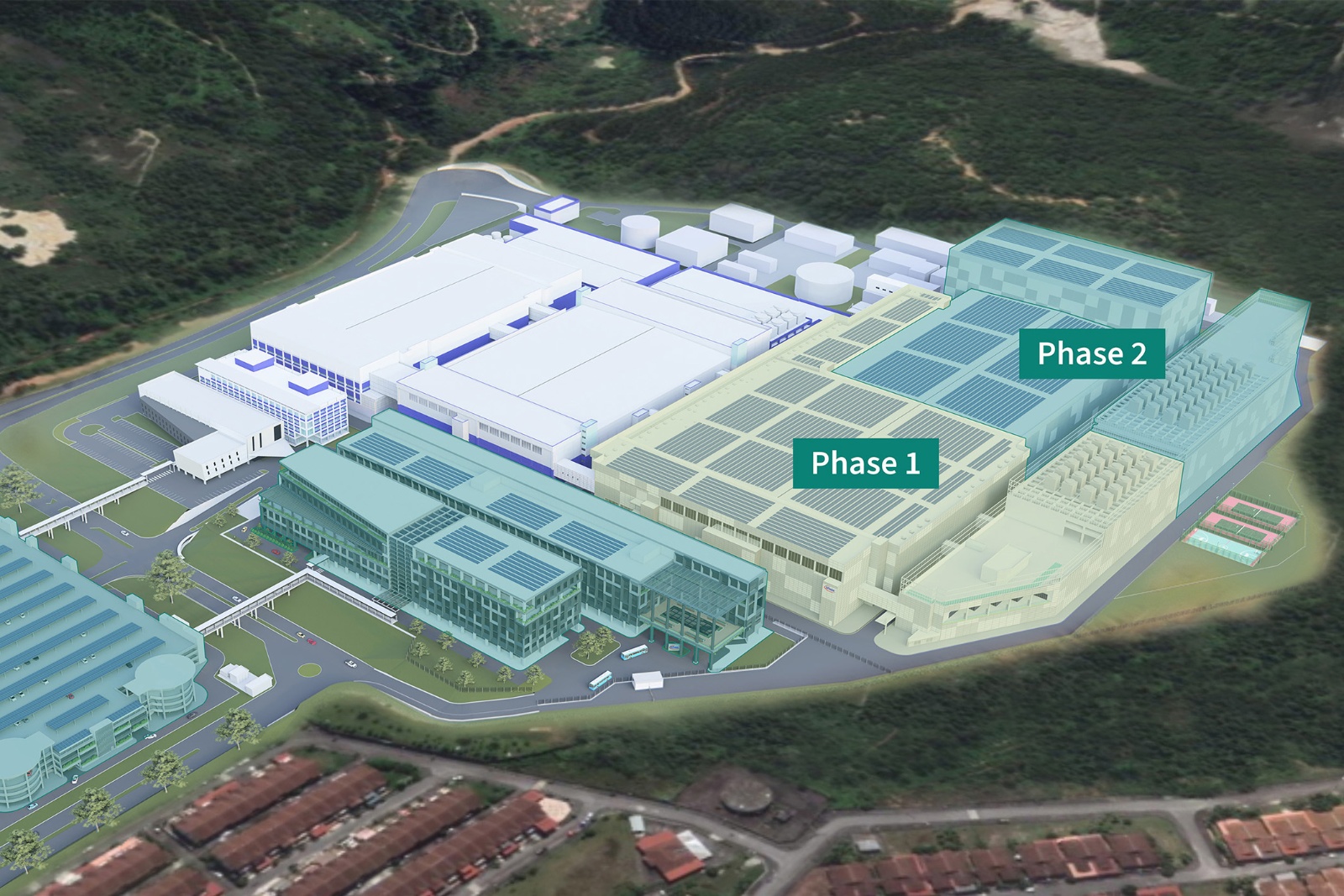
Infineon opens the world’s largest 200-millimeter SiC fab in Kulim.(Photo: Infineon)
Infineon Technologies, a leading German semiconductor manufacturer, officially inaugurated the world's largest silicon carbide (SiC) power semiconductor manufacturing facility in Malaysia on August 8.
The new plant not only aims to enhance the performance and reduce the carbon footprint of electric vehicles and data centers but also commits to using 100% green energy in its third phase, moving towards a carbon-neutral target by 2030.
Infineon's expansion in Malaysia targets green business opportunities
As global efforts to decarbonize boost the demand for power semiconductors, Infineon is expanding its investments in Kulim, northern Malaysia, to consolidate its leadership in the field. The facility focuses on wide bandgap (WBG) technologies, primarily silicon carbide and gallium nitride (GaN), which improve energy efficiency for electric vehicles, fast chargers, renewable energy systems, and data centers.
Compared to conventional silicon wafers, wide bandgap semiconductors can withstand higher temperatures and voltages. Silicon carbide is crucial for electric vehicle charging stations and renewable energy infrastructure, while gallium nitride offers higher power density, effectively converting electricity and reducing energy loss, making chargers and voltage converters more compact.
The new facility is divided into three phases, with the latest being Phase 1. Infineon has invested €2 billion (about 2.1 billion USD) for this phase. Phase 2 will see an investment of €5 billion (about 5.4 billion USD). Upon successful completion, the facility will become the largest 8-inch silicon carbide power semiconductor manufacturing base globally.
Although the products have not yet been delivered, Infineon has secured orders worth €5 billion through design wins with customers. Additionally, customer prepayments amounting to €100 million (about 109 million USD) are expected to fund the expansion of Phase 3.
.jpg)
Aerial view of Infineons SiC Power Fab in Kulim. (Photo: Infineon)
New facility will use green refrigerants and enhance water resource efficiency
To reduce carbon emissions, Infineon will use green refrigerants and enhance water resource efficiency in Phase 3. The company aims to achieve Green Building Index (GBI) certification for the facility.
According to Nikkei Asia and Bloomberg, Infineon's investment highlights Malaysia's growing importance in the global semiconductor supply chain amid geopolitical tensions such as the US-China trade war. Over recent years, Malaysia has emerged as a major global packaging hub, with companies like Intel and ASE increasing their investments, driven by lower labor costs and proximity to major markets.
Source: Infineon, Nikkei Asia, Bloomberg


